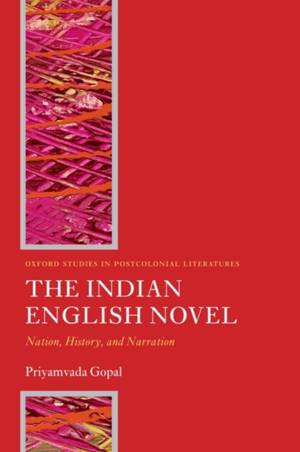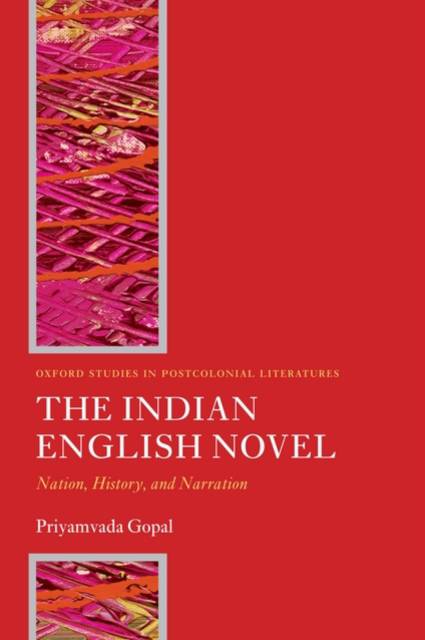
- Retrait gratuit dans votre magasin Club
- 7.000.000 titres dans notre catalogue
- Payer en toute sécurité
- Toujours un magasin près de chez vous
- Retrait gratuit dans votre magasin Club
- 7.000.0000 titres dans notre catalogue
- Payer en toute sécurité
- Toujours un magasin près de chez vous
The Indian English Novel
Nation, History, and Narration
Priyamvada (Churchill College, Cambridge) Gopal
125,95 €
+ 251 points
Format
Description
This book provides an informed and lively introduction to the Indian novel in English which is now a fixture on the international literary scene. It discusses the work of major writers including Rabindranath Tagore, Mulk Raj Anand, RK Narayan, Salman Rushdie, Nayantara Sahgal, Amitav Ghosh, Arundhati Roy, and Vikram Seth.
Spécifications
Parties prenantes
- Auteur(s) :
- Editeur:
Contenu
- Nombre de pages :
- 232
- Collection :
Caractéristiques
- EAN:
- 9780199544387
- Date de parution :
- 29-01-09
- Format:
- Livre relié
- Dimensions :
- 140 mm x 210 mm
- Poids :
- 411 g

Les avis
Nous publions uniquement les avis qui respectent les conditions requises. Consultez nos conditions pour les avis.






